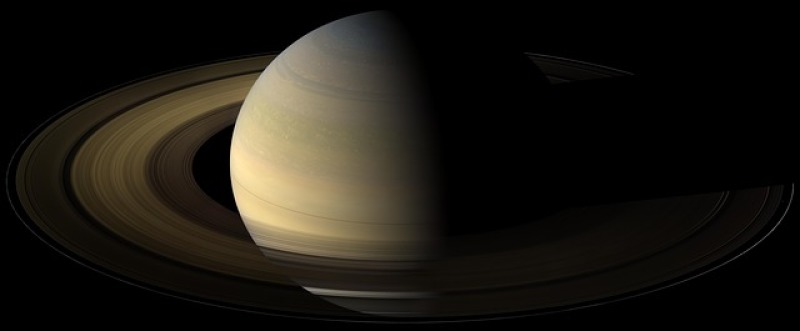
Scientists predicted that someday, Mars could have rings around it just like Saturn.
This could happen after the Red Planet's natural satellite Phobos completely breaks apart, according to CBC.
It was previously reported that the orbit of the moon Phobos is getting closer to Mars. As it spirals towards the planet due to Mars' gravitational pull, the massive amount of force applied by the Red Planet on the moon will eventually cause it to break up. In fact, the scientists noted that Phobos already has streaks or fractures on its surface due to the gravitational forces.
Based on the scientists' observations on the moon, the oval-shaped Phobos has a length of about 27 kilomters and a width of 18 kilometers. According to them, due to its low density and porous structure, the moon is not strong enough to withstand the forces exerted on it my Mars, which scientists refer to as tidal stress.
"The main factor affecting whether Phobos will crash into Mars or break apart is its strength," Tushar Mittal, a co-author of the new study and a graduate student at the University of California Berkeley told Space.com.
"If Phobos is too weak to withstand increasing tidal stresses, then we expect it to break apart," the researcher added.
This could eventually lead to the side of Phobos facing Mars to break. Scientists predict this could happen in around 20 to 40 million years from now.
The splintering of Phobos will then result in the formation of debris that will eventually gravitate around Mars and form a ring around the planet. The rubble will then remain around Mars for about 1 million years because they will probably travel slower than the orbit of Phobos. Then, eventually, as the small rocks continue to move inwards, it will crash on Mars's surface.
"Eventually, Phobos will either break apart to form a ring or it will crash into Mars," the researchers wrote in the study.
"Any large fragment of Phobos that is strong enough to escape tidal breakup will eventually collide with Mars in an oblique, low-velocity impact," they continued.
If the prediction of the scientists does come happen, then it will change how future civilizations will view and study Mars. In addition, it will also make it the first planet with a ring in the inner solar system.
The findings of the researchers were detailed in a report published on November 23 in the scientific journal Nature Geoscience.


















